
By the time Tessa Hill was 13, she could tell you in a detailed matter what consent meant — something even adults twice her age have a hard time doing.
In 2015, the Toronto native, who was in Grade 8 at that time, released the documentary Allegedly with friend Lia Valentine, a school project that centred around rape culture. In the months afterward, Hill met with former Ontario premier Kathleen Wynne to talk about sex ed and launched a viral campaign called We Give Consent, which is still active today.
While it’s true not every young person can openly talk about sex, consent or even dating like Hill can, the now 17-year-old high school student says people her age are a lot more open about these topics or can at least grasp them.
Photo courtesy of Tessa Hill. Illustration by Laura Whelan
“We are able to actively look at how to move toward a consent culture, but it doesn’t just need to be named; it needs to be deeply understood and practised,” she tells Global News. “I think generation Z will be the leaders in that process of unlearning and teaching others about consent culture.”
Hill is part of a cohort that is known as generation Z, a group that roughly makes up 17.6 per cent of Canada’s total population, according to 2017 data from Statistics Canada. Although there is no established start or end date, experts say gen Z-ers are born between 1995 and 2005, making the youngest 13 and the oldest 23. Some argue the generation ends at ages 22 (1996) or 24 (1994). This is still a growing population, one that may not have had traditional life experiences (jobs, mortgages, etc.) thrown at them.
WATCH: Does this generation care about dating? Gen Z-ers talk dating and settling down.

But this generation has also been dubbed anti-social, one that is not interested in dating or having sex, and experts like Toronto-based sex educator Luna Matatas says while it is hard to measure this data for a large population, research like this gives us a glimpse of how this generation may work.
“Gen Z is showing us what a generation looks like with more acceptance and exploration around fluidity of sexuality and gender — they aren’t accepting the binaries many of us have grown up in as ‘the norm,'” she tells Global News, adding she doesn’t believe that this means gen Z isn’t interested in pursuing sex.
No sex? No way
According to a non-scientific survey conducted by Global News in May, 356 self-proclaimed gen-Zers answered a variety of questions on topics like technology, mental health, as well as their predictions on how the generation might shake up the future job market or social space. They also talked about their dating experiences.
The survey found 58.9 per cent of people in this age group were not in a relationship (which aligns with previous research), while 36.6 per cent said they were. A small number of gen-Zers, 4.5 per cent, said they were not allowed to date.
It also found that 73.2 per cent of generation Z are not using popular online dating sites like Tinder and Bumble, while 23.7 per cent were. And when they were asked how they felt about assumptions that their generation is not engaging in sexual activity, 67.7 per cent of respondents said it was simply not true. Only 21.9 per cent thought their generation was having less sex than other generations, and 10.4 per cent weren’t sure.
Illustration by Laura Whelan
“While research shows they may be having less sex on average, I think gen Z is still interested in dating or sex — but are redefining what that means,” Matatas says. “Everything from exploring concepts like polyamory, gender and sexuality fluidity, and choice of partners.”
Hill says one report that labelled the generation sexless is one she read with her class.
“Sexuality and dating is still pretty much a part of teenage-hood at this point, but I think maybe one of the things that has changed in my friend group and the conversations about [sex] is how much more open it is,” she continues. “People aren’t afraid to talk about their feelings or loneliness as well.”
Social media connections
This is the generation that has only known life with the internet, the generation that doesn’t see online dating sites or messaging people you are attracted to on Twitter or Instagram as taboo. Using technology to date, which is common for many generations in 2018, it is just the way of life.
WATCH: Generation Z: Meet Canada’s connected and optimistic generation?

Educator Natalie Boustead tells Global News the internet and social media has allowed young people to explore sexual culture for decades now, but for gen Z, it can seem like there is endless information.
“The sexual culture is, in some ways, more open than it has been for previous generations. There’s a greater acceptance of LGBTQ realities; this is great for people of all orientations,” she says. “It’s also easier to access technical information about things like STI testing anonymously.”
She adds apps have allowed casual sex and hookup culture to start at a younger age (which has its pros and cons) and there’s more space to experiment and explore pleasure.
“We think that’s great,” she adds. “Unfortunately, there’s still a lot of cultural shame around sex, and we don’t give young people adequate education to navigate this complex terrain well.”
Speaking with Global News, some gen-Zers told us the most common way to meet someone to date is at school. If you’re interested in someone, you could scroll through their Instagram page. Or you could message them directly or “like” a photo they post — something that also isn’t unique for gen Z.
WATCH: They’re considered Canada’s most connected, open and optimistic generation, but who are they? Farah Nasser sat down with national online journalist Arti Patel to talk about this cohort of young people.

“I’ve met women through social media, through Twitter, that I’ve dated, but I think the best interaction is still face-to-face,” says Zac Pinto Lobo, 20, of Toronto.
The generation also loves using “LOML” (love of my life) or “bae,” 17-year-old high school student Alice Cheng says, even though the terms are outdated.
But it’s not all smoothing sailing.
Sumiko Wilson, 20, says dating in a world with an overwhelming amount of options and apps can make dating tricky.
“It’s challenging, but definitely not something that is insurmountable,” she adds.
Matatas adds viewing social media as a source to find and maintain a relationship can also lead to urges for instant gratification and validation by getting a match.
More sex ed on consent
She adds another gap that needs to be filled is how much this generation knows and understands consent — even though gen Z arguably has a better understanding of it compared to other generations, experts say.
“Many consent and sexual and reproductive rights conversations, like #MeToo, have raised an issue with consent that has always been there, but we are seeing young people react to it. They are injecting their personal stories and experiences into the conversation, largely in public, through social media,” she says. “The peer validation of struggles, violations, confusions and conversations is powerful. Lots still needs to be done to empower gen Z to not make the same mistakes as other generations.”
Diya Sapra, 13, of Brampton, Ont., says teens her age don’t talk much about consent, while Pinto Lobo, who is seven years older, adds people his age discuss it more.
Boustead says parents need to focus on helping young people understand and talk about pleasure and about power.
“This means much, much more education about equity, emotional literacy, boundaries and communication. We also need to integrate a media literacy approach to pornography, because porn is already a part of the conversation — ignoring it does not make it go away,” she says.
“Most young people have access to technical knowledge, so that’s great. What they don’t have is language, tools and space to practice talking about complex and often stigmatized things and figuring out a way to collaborate towards common aims.”
This week, Global News will take a look at the many ways gen Z functions, from their views on mental health and the job market to how they take part in pop culture. As you’ll see, this is still a largely untapped generation. Follow along on Twitter with the hashtag #GenZed.
— Illustrations by Laura Whelan



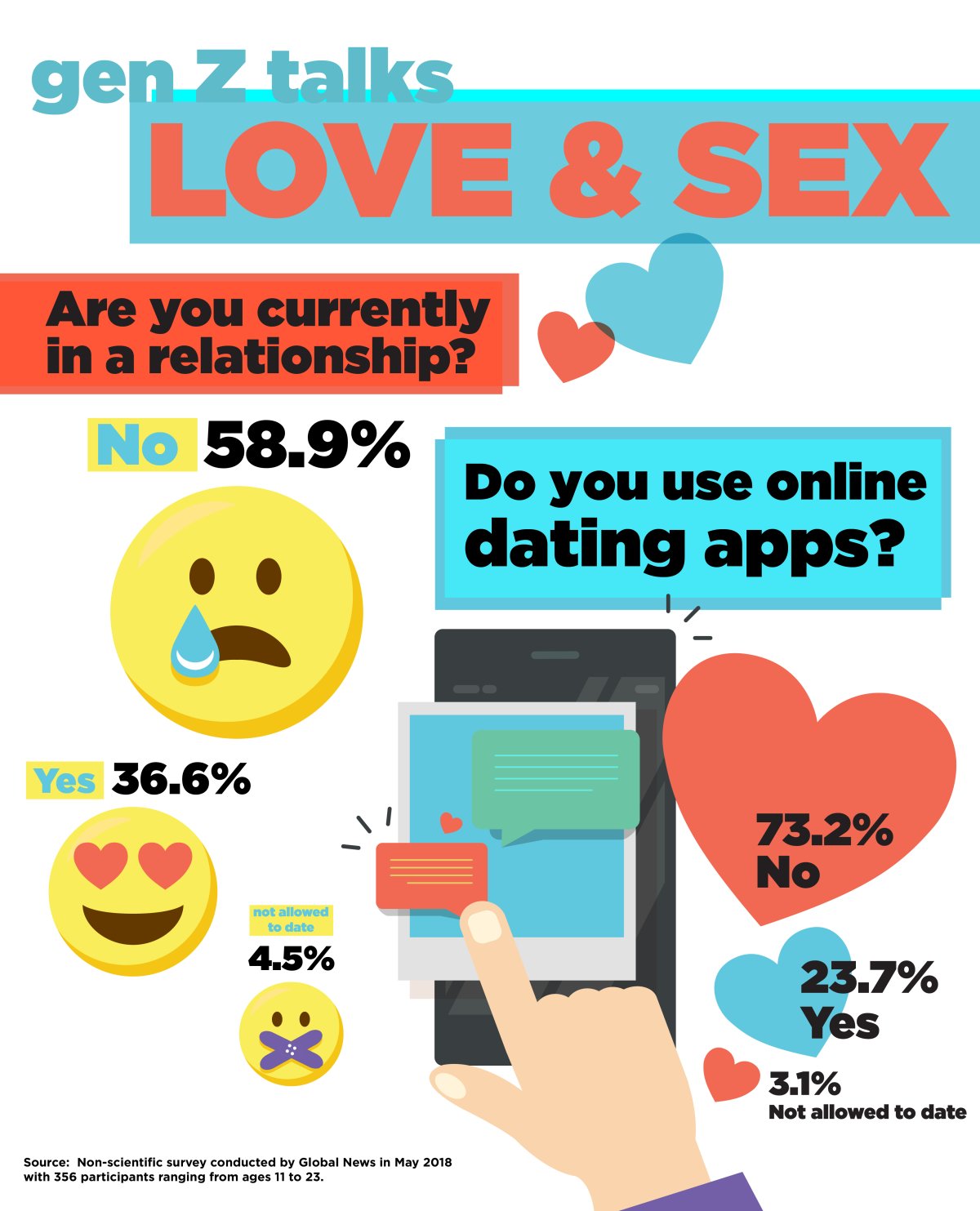
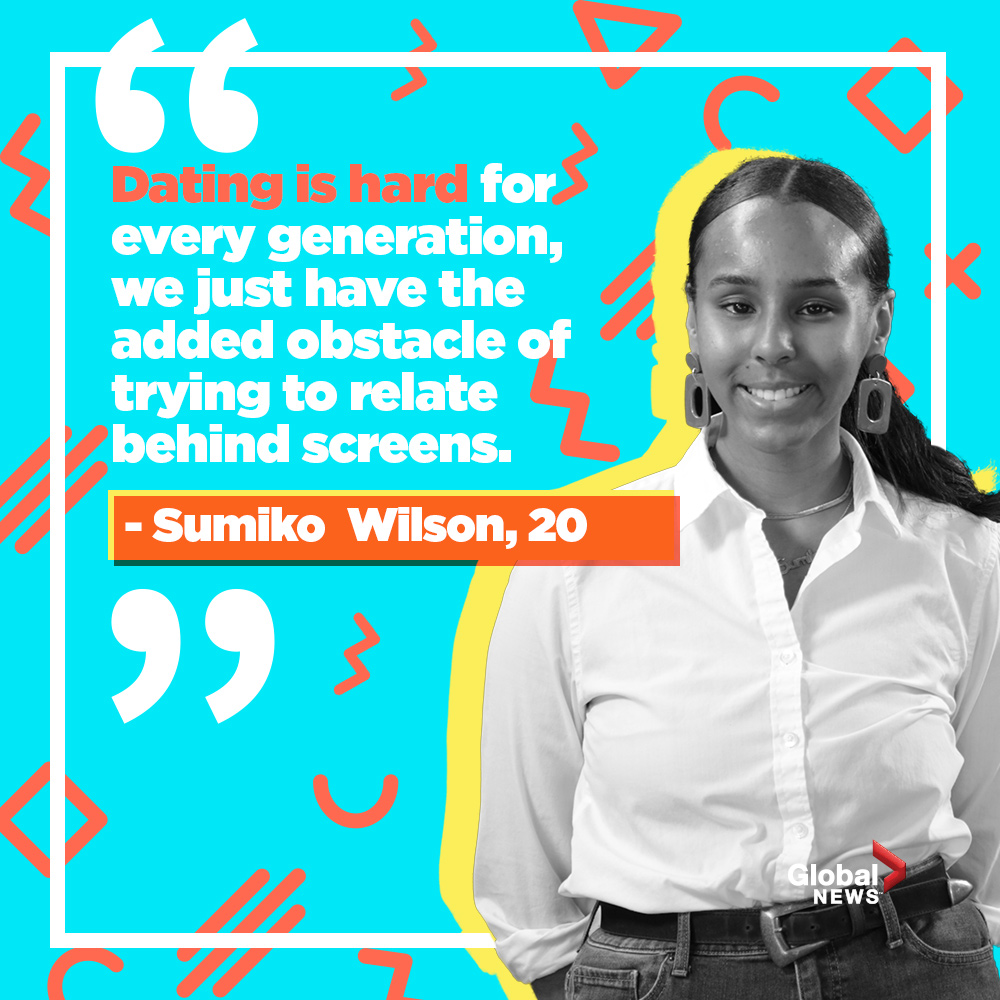
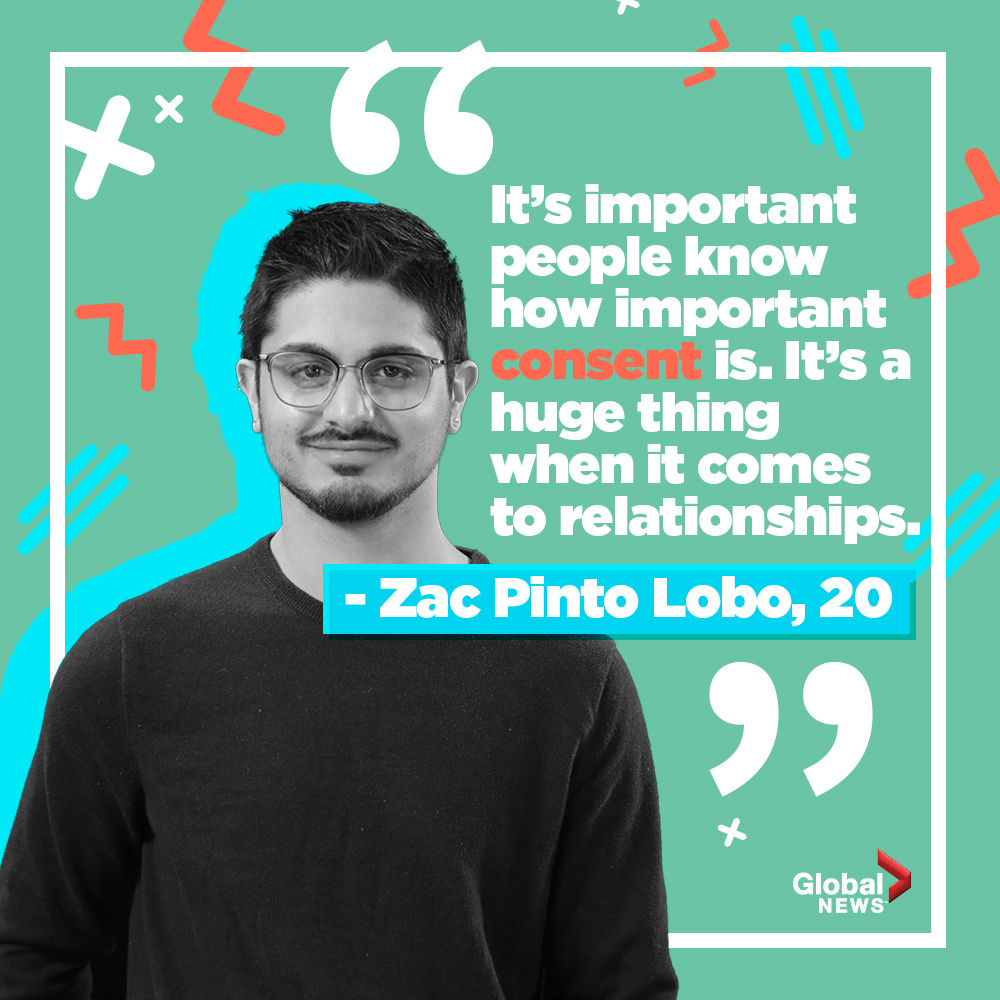


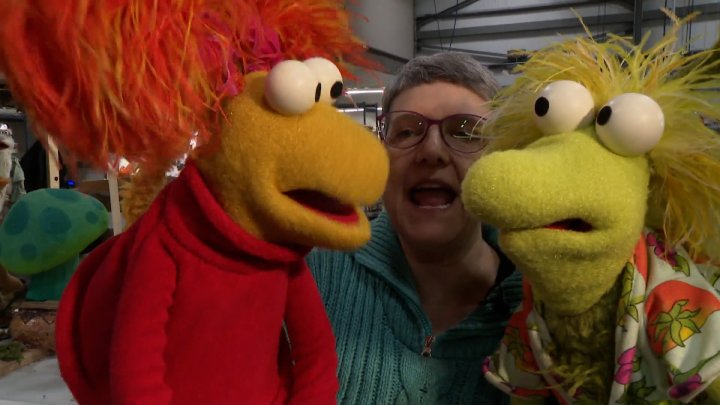
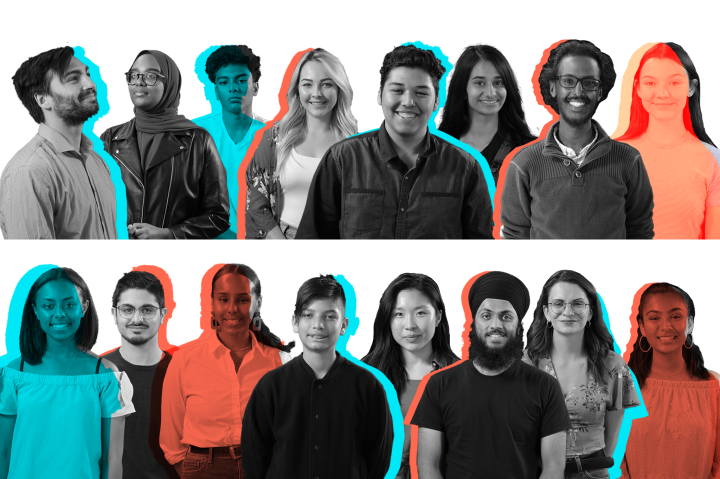



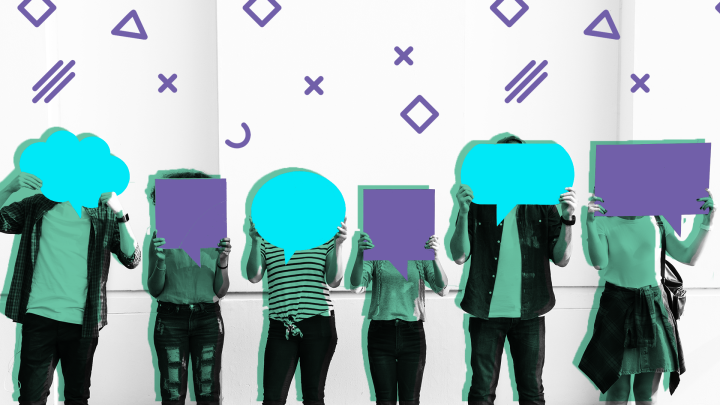


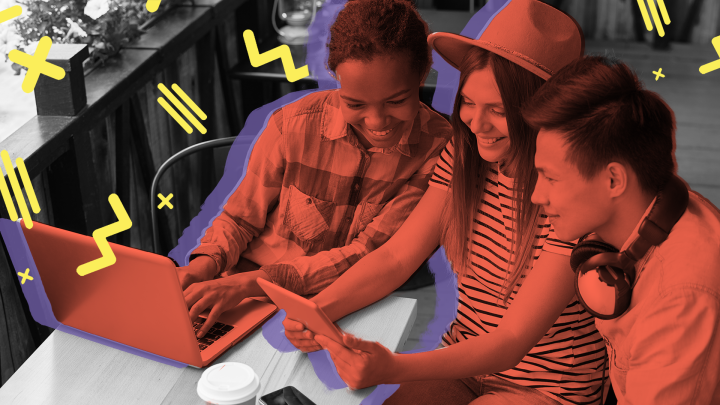
Comments